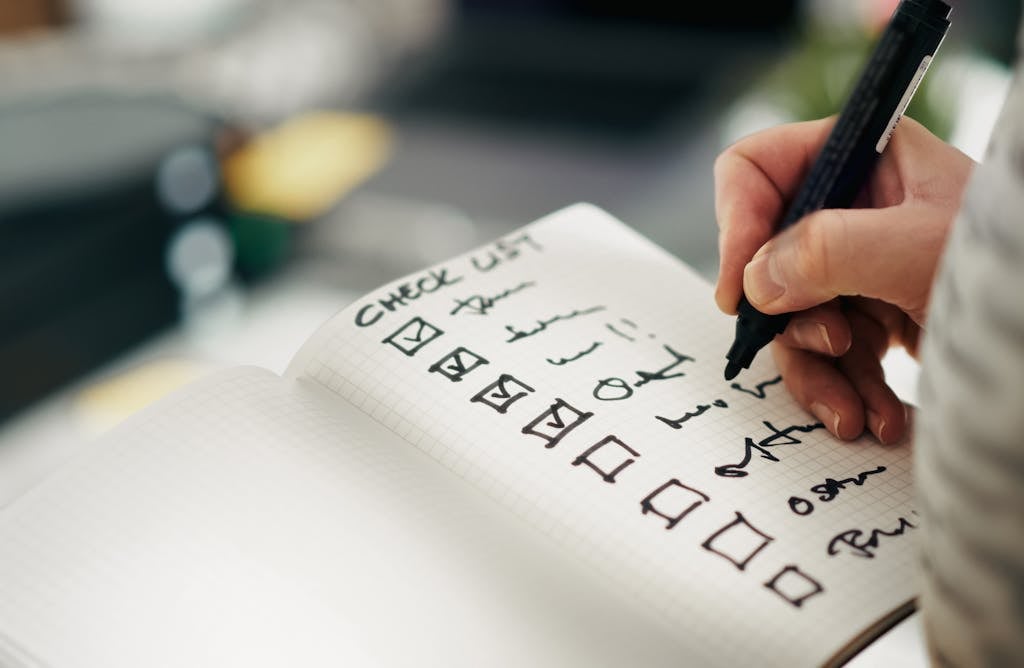
You’ve likely attempted creating self-care routines before, only to witness them disintegrate within weeks. I can inform you that the majority fail because they’re constructing routines for the individual they aspire to be, not who they currently are. Your schedule, energy reserves, and authentic preferences hold more significance than Instagram-worthy bubble baths and 5 AM meditation sessions. The distinction between enduring self-care and another forsaken habit hinges on one pivotal element.
Assess Your Current Well-Being and Identify Your Needs
Before you can build an effective self-care routine, you need to take an honest look at where you stand right now. I can tell you from experience, most people skip this step and wonder why their routines fail.
Start by examining your energy levels throughout the day. When do you feel drained? What situations leave you emotionally depleted? I’ve never seen someone create lasting change without identifying these patterns first.
Next, assess your physical state. Are you getting quality sleep? How’s your nutrition? Your body sends clear signals when it needs attention.
Finally, evaluate your mental and emotional well-being. What triggers your stress? Where do you feel overwhelmed? Pay special attention to signs like emotional numbness or feeling disconnected from activities you once enjoyed, as these indicate deeper self-care needs. Write these observations down. This honest assessment becomes your roadmap, showing you exactly where to focus your self-care efforts for maximum impact.
Start Small With Micro Self-Care Habits

Now that you know where your self-care gaps are, resist the urge to overhaul your entire life overnight. I can tell you from experience, that approach fails spectacularly. Instead, you’ll build unstoppable momentum by starting with micro habits that take less than five minutes.
Small steps create unstoppable momentum while grand overnight transformations fail spectacularly every time.
These tiny changes compound into massive results:
- Take three deep breaths before checking your phone – This creates instant mental clarity and puts you in control of your morning
- Drink one full glass of water upon waking – Your body craves hydration after hours without it
- Write down one thing you’re grateful for – This rewires your brain for positivity and success
- Stretch for two minutes – Your muscles will thank you, and you’ll feel more energized
The key is understanding that compound growth happens when you consistently show up for yourself in small ways, even when it feels insignificant.
I’ve never seen anyone regret starting small, but I’ve watched countless people abandon grand plans.
Design Your Routine Around Your Natural Schedule
Once you’ve established those micro habits, you’ll want to map them to your body’s natural rhythms instead of fighting against them. I can tell you from years of trial and error, forcing morning meditation when you’re naturally a night owl creates friction that kills routines fast.
Pay attention to your energy patterns throughout the day. When do you feel most alert, creative, or calm? I’ve never seen someone succeed long-term by scheduling intense self-care during their natural low-energy periods. If you’re sharpest at 6 AM, that’s prime time for journaling or planning. If evenings bring you peace, claim that space for stretching or reflection.
Research shows that early birds have peak productivity from 9 AM to 1 PM, while night owls perform best from 4 PM to 9 PM—timing that can guide your self-care scheduling.
Your chronotype isn’t weakness—it’s intelligence. Work with your body’s wisdom, not against it, and watch your consistency skyrocket.
Choose Activities That Actually Energize You

While most people stuff their self-care routines with activities that drain them, the secret lies in choosing practices that genuinely restore your energy instead of depleting it.
I can tell you from years of trial and error, most self-care advice gets this backwards. You’re told to do meditation, bubble baths, or yoga without considering what actually fuels you personally.
Here’s how to identify your true energy boosters:
- Track your energy levels before and after different activities for one week
- Notice what you crave when you’re genuinely tired versus socially expected to relax
- Pay attention to activities that make you feel powerful, not just peaceful
- Test opposite approaches – some people recharge through movement, others through stillness
Your self-care routine should leave you feeling more capable, not more depleted. Remember that self-care is necessary, not selfish, and choosing activities that genuinely energize you better equips you to handle life’s challenges.
Create Non-Negotiable Boundaries for Your Self-Care Time

Why does everyone else’s schedule seem to take priority over your self-care time? Because you haven’t drawn firm lines yet. I can tell you that boundaries without consequences are just suggestions, and people will steamroll right over them.
You need to treat your self-care blocks like unmovable appointments. When someone asks you to skip your morning workout for a last-minute meeting, say no. When family wants you to sacrifice your Sunday reading time for another obligation, decline firmly.
I’ve never seen anyone regret protecting their energy. Put your self-care time in your calendar first, then build everything else around it. Turn off notifications during these blocks. Don’t answer calls, texts, or emails. Your well-being isn’t negotiable.
Starting your day with a mindful ritual can set a peaceful tone and help you feel centered before the chaos of daily demands begins.
Build Flexibility Into Your Routine for Busy Days
Even when you’ve mastered boundaries, life will still throw curveballs that threaten to derail your self-care routine entirely. I can tell you from experience, the people who maintain their power during chaos aren’t the ones with perfect schedules—they’re the ones who adapt without abandoning themselves.
Your routine needs built-in flexibility, or you’ll crumble when pressure hits. Here’s what works:
- Create 5-minute backup options – Deep breathing, quick stretches, or gratitude lists you can do anywhere
- Identify your non-negotiable minimums – What’s the absolute least you need to feel centered?
- Schedule buffer time – Build 15-minute cushions around your self-care blocks
- Prepare portable practices – Meditation apps, essential oils, or calming playlists ready on your phone
Consider keeping a simple gratitude journaling practice as your emergency reset—just three minutes of writing what went well can shift your mindset from anxiety to appreciation, even on your most chaotic days.
I’ve never seen someone maintain their edge without this adaptability.
Track Your Progress Without Perfectionism

Since most people turn progress tracking into another way to beat themselves up, I need to address this head-on before you sabotage your entire routine. I can tell you that perfectionist tracking kills more self-care routines than any other factor.
Track completion, not perfection. Mark down when you did something, anything, even if it wasn’t your full plan. Did five minutes of meditation instead of twenty? That’s a win. Took a walk instead of your planned workout? Still counts.
I’ve never seen anyone succeed long-term by tracking their failures. Focus on what you accomplished, however small. Use simple checkmarks or stars on a calendar. When you miss days, don’t analyze why—just restart tomorrow. Your tracking system should fuel motivation, not shame.
Consider keeping a gratitude journal alongside your progress tracking to celebrate the small wins and maintain a positive perspective on your self-care journey.
Adjust and Evolve Your Routine as Your Life Changes
Your self-care routine will need updates, and I can tell you that fighting this reality destroys more good habits than you’d expect. Life shifts constantly—new jobs, relationships, health changes, different stress levels. Your routine must shift with it, or it’ll become irrelevant baggage you’ll eventually abandon.
I’ve never seen anyone maintain the exact same self-care routine for years. The most successful people treat their routines like living documents that evolve strategically.
Self-care routines are living documents, not rigid rules—the most successful people adapt them strategically as life evolves.
Here’s how to adapt yours effectively:
- Review your routine quarterly to assess what’s working and what isn’t
- Replace outdated practices with activities that match your current lifestyle
- Scale up or down based on your available time and energy levels
- Test new elements gradually rather than overhauling everything at once
Just like building a sustainable rhythm requires monthly reviews rather than daily tweaks, your self-care routine benefits from this same patient, measured approach to change.
Conclusion
Building a self-care routine isn’t about perfection—it’s about progress. You’ve got the tools now: start small, honor your natural rhythms, choose energizing activities, and protect your boundaries. I can tell you from experience, the magic happens when you treat your routine as something that grows with you. Don’t wait for the “perfect” moment to begin. Your well-being deserves attention today, not tomorrow.





Leave a Reply